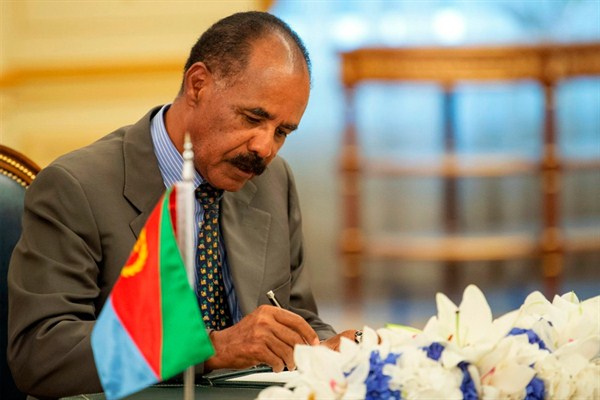In a sign of rapidly changing geopolitical dynamics in the Horn of Africa, the United Nations Security Council on Wednesday voted unanimously to lift sanctions against Eritrea. The move comes amid a rapid thaw in Eritrea’s relations with neighboring Ethiopia and Somalia. The leaders of all three countries met for a rare summit in September, raising hopes for broader regional cooperation.
In a further sign of detente, Somalia and Ethiopia advocated at the U.N. for the sanctions to be lifted, strengthening Eritrea’s case. The sanctions, which included an arms embargo, asset freeze and travel ban on Eritrean officials, were first imposed nine years ago for the Eritrean government’s alleged support for terrorist groups like al-Shabab. According to Awet Weldemichael, a professor of African history and politics at Queen’s University in Canada, the underlying evidence for this support was never convincing, but that did not stop the sanctions from being weaponized by Eritrea’s erstwhile enemies.
A constellation of factors has led to a dramatic shift in global attitudes toward Eritrea over the past three or four years, Weldemichael says in a recent interview with WPR. Among the most important was the rise to power of Ethiopian Prime Minister Abiy Ahmed, who took steps to reconcile with Eritrea. As ongoing hostilities between Eritrea and Ethiopia rose amid persistent internal divisions, “it became necessary for both of these countries to mend fences and pull each other out from the mess they found themselves in,” Weldemichael says.

